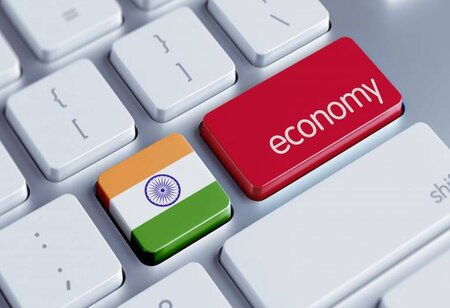India’s 2021 economic output likely to remain below the 2019 level: UN report
 India’s economic output in 2021 is expected to remain below the 2019 level despite the roll-out of the vaccine to deal with the menace of the coronavirus pandemic, said a report by the United Nations Economic and Social Commission for Asia and the Pacific (UNESCAP) released on Tuesday.
India’s economic output in 2021 is expected to remain below the 2019 level despite the roll-out of the vaccine to deal with the menace of the coronavirus pandemic, said a report by the United Nations Economic and Social Commission for Asia and the Pacific (UNESCAP) released on Tuesday.
India, according to the ‘Economic and Social Survey of Asia and the Pacific 2021: Towards post-COVID-19 resilient economies’, is estimated to record an economic growth of 7 per cent in 2021-22, over a contraction of 7.7 per cent witnessed in the previous fiscal on account of the pandemic’s impact on normal business activity.
Observing that India entered the pandemic with subdued GDP growth and investment, the report said, “Following one of the most stringent lockdowns in the world, the economic disruptions that the country experienced mounted in the second quarter of 2020.”
Produced annually since 1947, the Economic and Social Survey of Asia and the Pacific is the oldest United Nations report on the region’s progress
It added that a subsequent change in lockdown policies and success in reducing infection rates supported an impressive economic turnaround in the third quarter. “However, the pace of recovery moderated in the fourth quarter with estimated year-on-year growth still close to zero. “Despite a robust reduction in new COVID-19 cases and the start of vaccine roll-out, India’s 2021 economic output is expected to remain below the 2019 level,” it added.
Meanwhile, maintaining low borrowing costs while keeping non-performing loans in check would be a challenge, it added. In its second advance estimates of national accounts, the National Statistical Office (NSO) has projected an 8 per cent contraction in 2020-21, showing the pandemic impact.
The report futher said China’s swift and effective response to COVID-19 enabled it to become the only major economy worldwide to achieve a positive annual economic growth rate in 2020.
Supported by strong recovery in industrial production, infrastructure and housing investment, merchandise exports, and a modest recovery in private consumption, its 6.5 per cent year-on-year growth rate in the fourth quarter exceeded pre-pandemic growth levels.
The report forecasts that on an average, developing Asia-Pacific economies are expected to grow 5.9 per cent in 2021 and 5 per cent in 2022, after having experienced an estimated contraction of 1 per cent in 2020.
Despite a reasonably strong rebound expected in 2021, a ‘K-shaped recovery’ is likely, with poorer countries and more vulnerable groups marginalised in the post-pandemic recovery and transition period,” it said.
For a more robust and inclusive recovery, the report calls for a more synchronised COVID-19 vaccination programme across countries and highlights opportunities to leverage regional cooperation. At the same time, it recommends that fiscal and monetary support should be sustained, as premature tightening could increase long-term scars. Produced annually since 1947, the Economic and Social Survey of Asia and the Pacific is the oldest United Nations report on the region’s progress.


